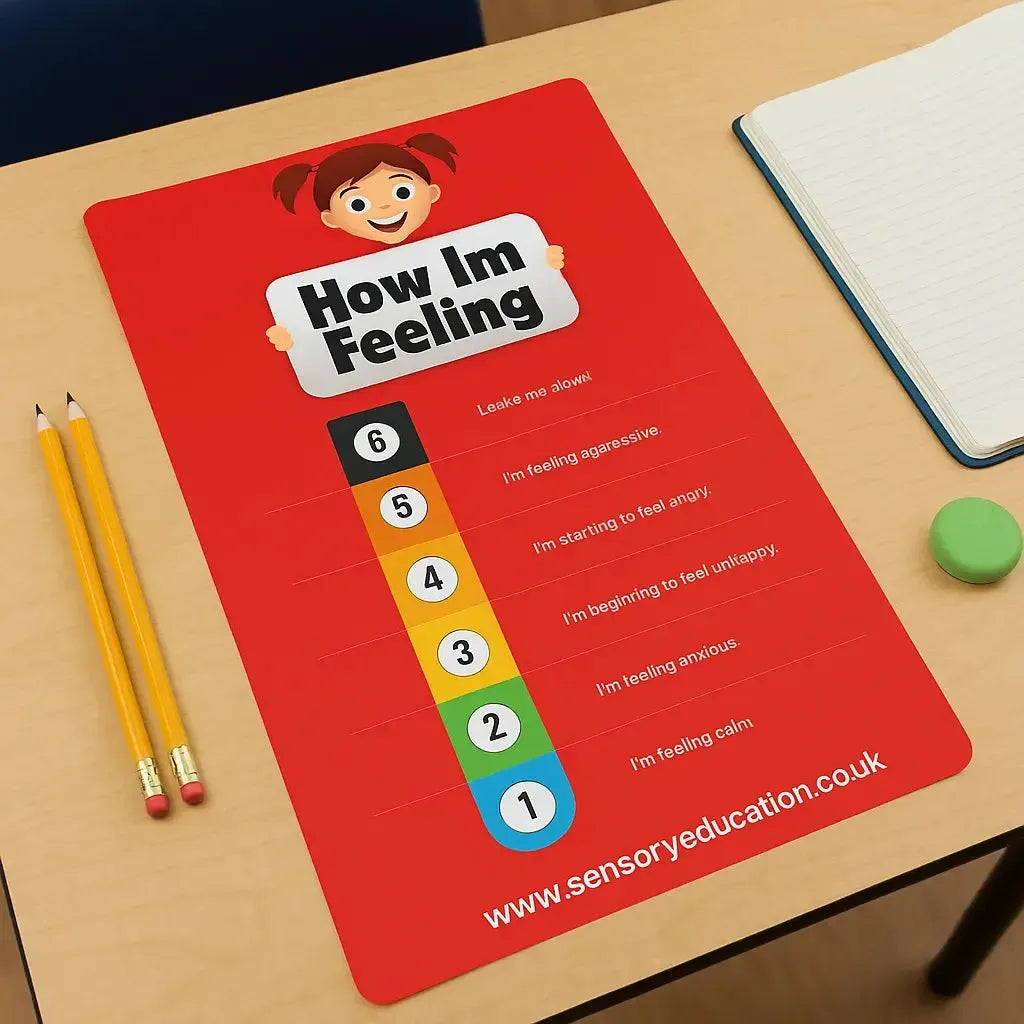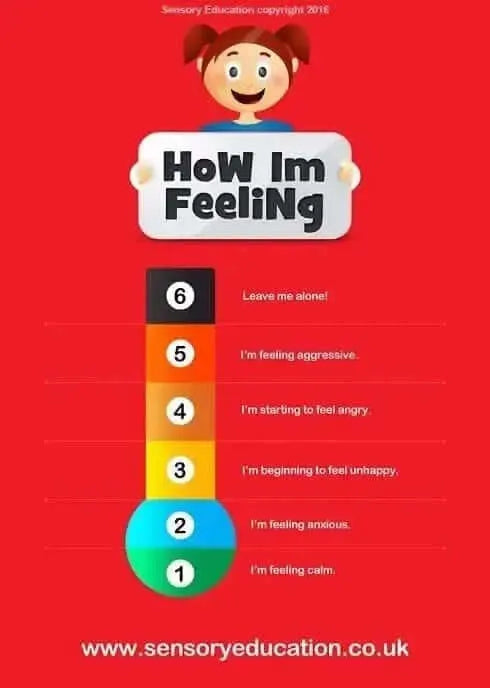Description
Emotional Thermometer – A Visual Tool for Teaching Emotional Regulation
Support emotional development in young learners with the Emotional Thermometer, a practical, teacher-approved tool designed with input from CAMHS (Child and Adolescent Mental Health Services). This durable, wipe-clean chart helps children recognise and understand their emotional escalation cycle, a crucial step in developing emotional self-awareness and regulation skills.
The Emotional Thermometer uses a clear, colour-coded format to visually represent different emotional intensity levels. This makes it easier for children to identify their feelings in the moment and learn to respond before emotions escalate. Whether used at school or home, this tool is ideal for guiding discussions around feelings, offering children a non-verbal way to express their emotions and develop healthy coping strategies.
Particularly effective for children with additional behavioural needs or those working towards IEP (Individual Education Plan) goals, the Emotional Thermometer fits seamlessly into emotional literacy lessons, behaviour support plans, and wellbeing initiatives. It encourages children to pause, reflect, and label their feelings — a foundational skill for emotional intelligence and lifelong resilience.
Features of the Emotional Thermometer:
-
Developed with CAMHS input to support emotional wellbeing
-
Teaches children to recognise varying intensities of emotions
-
Ideal for behaviour management and emotional literacy interventions
-
A4 size, printed on gloss-treated, strong-backed card for durability
-
Wipeable surface – suitable for everyday use in classrooms or at home
-
Encourages emotional labelling, reflection, and self-management
-
Valuable for implementing IEP targets focused on emotional regulation
Whether you’re a teacher, SENCO, therapist, or parent, the Emotional Thermometer is an essential resource for helping children gain control over their emotional responses. This powerful visual support tool empowers young learners to identify their feelings and build lifelong emotional regulation skills.


